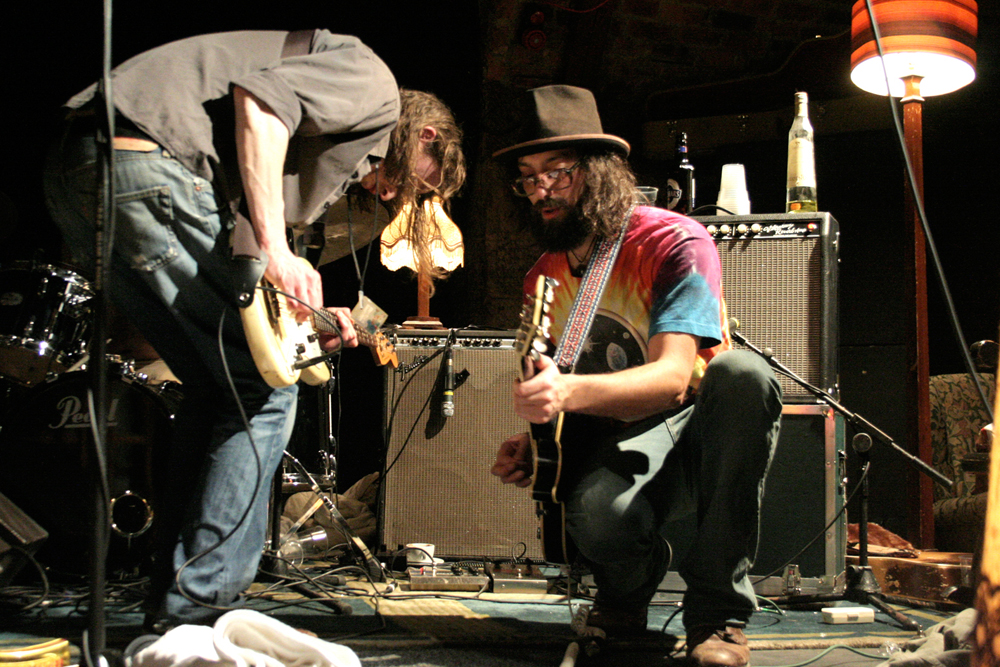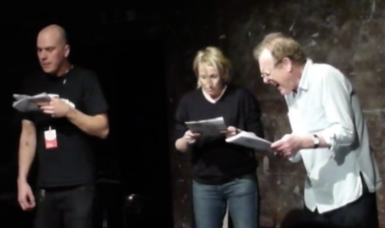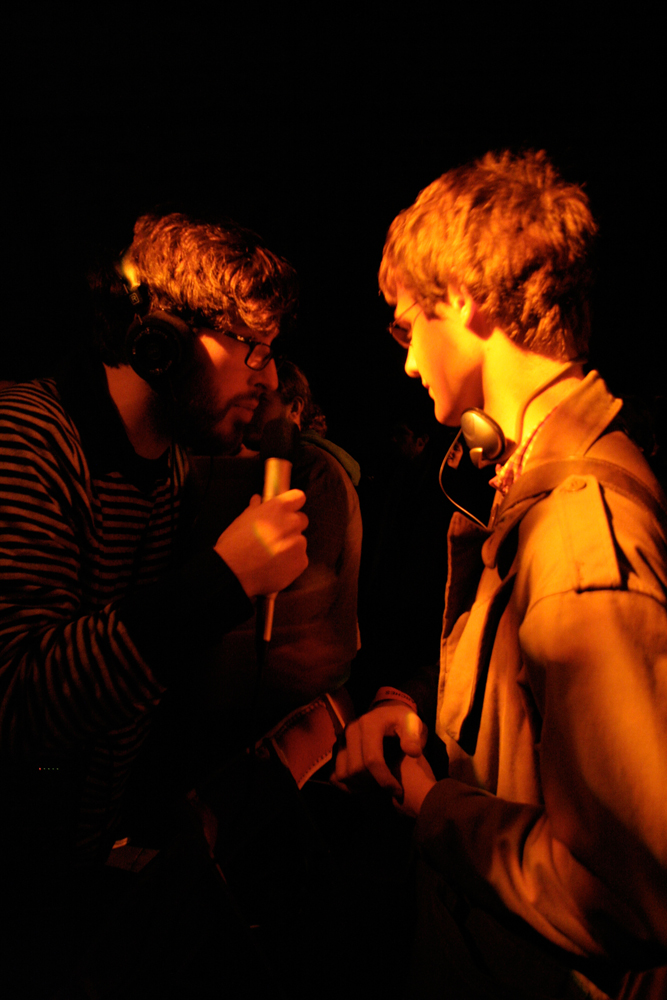
Golden Cherry Ball
MV & EE The Cherry Blossoms
An event exploring anarchic and communal situations of musical creation with MV, EE and The Cherry Blossoms.
Arika have been creating events since 2001. The Archive is space to share the documentation of our work, over 600 events from the past 20 years. Browse the archive by event, artists and collections, explore using theme pairs, or use the index for a comprehensive overview.

An event exploring anarchic and communal situations of musical creation with MV, EE and The Cherry Blossoms.

Do almost nothing: re-present (unaltered and arranged by chance) silent family home movies handed down to Flo, (Ken’s wife) and follow them with a “teach yourself Yiddish” cassette tape.

A performance by Storyboard P – one of the greatest Afrofuturist dancers on the planet.

In 2008 we toured our Kill Your Timid Notion festival of experimental sound and image to London, Bristol and Glasgow, bringing audiences a taste of the previous 5 festival editions.

Can we use sound, repetition and difference to personally and collectively engage with space, time and labour?

GIO’s bottomless throat, Blood Stereo’s slobber gobbler and the Mouth Of The South tangle tonsils over Steve McCaffrey’s Carnival

Investigating the border between the audible and the visible means looking at the margins, the edges of creativity where artists test out new boundaries and define them anew.

Jarrod Fowler creates a social space where layered one-to-one live encounters with the audience become sonic material.

Open community meeting to discuss some of the prevalent concerns impacting the ballroom community.

A programme looking at landscape, filmic or architectural spaces and at how the fixed stare of a camera frame only captures so much reality; here we focus on how filmmakers structure our relationship with that reality and at how they relate it to or interpret it through sound.

In true reality television style, this in-depth artist talk will tackle all the hardest-hitting questions and juiciest details about care, creative collaboration, and disability justice.

A cinema of the mind, a film to take place in the viewers’ imagination(s).